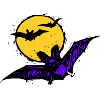Wildlife Disease and Zoonotics

Zoonotics and Wildlife Disease: Publications
Document Type
Article
Date of this Version
2005
Abstract
The purpose of this study was to enhance the sensitivity of the Western blot (WB) test for use as an alternative and confirmatory method for the diagnosis of scrapie and chronic wasting disease (CWD) in Canada by comparing 2 sample preparation procedures: an abnormal prion protein (PrPSc) concentration procedure using sodium phosphotungstic acid (PTA) precipitation and a procedure using crude sample without precipitation. A total of 100 cerebrum samples (52 sheep and 48 elk), including 66 negative (31 sheep, 35 elk) and 34 positive (21 scrapie and 13 CWD positive) samples diagnosed by using immunohistochemistry (IHC) on retropharyngeal lymph node (RPLN) and medulla oblongata at obex, were tested by using WB with the 2 sample preparation procedures. The WB using non-PTA enriched sample (crude extract) detected, on average, only 71.7% (9 of 15, 60.0% for scrapie, 5 of 6, 83.3% for CWD) of the samples that tested positive by using WB with PTA enriched samples. No case was positive by WB using crude extract but negative by WB using PTA enriched sample. No false positive was found. Serial dilution of PTA precipitated samples demonstrated that the technique increases the detection limit approximately 100 fold. Additionally, the comparison of the WB and IHC on cerebrum from all the positive cases demonstrated that WB following PTA precipitation and IHC had 100% agreement by detecting 6 positive for CWD on cerebrum; while IHC detected scrapie in only 14 out of 15 positive cerebrum samples by using WB following PTA precipitation. Phosphotungstic acid precipitation is therefore a useful adjunct to WB analysis of scrapie and CWD and tissues.


Comments
Published in The Canadian Journal of Veterinary Research 2005;69:193–199